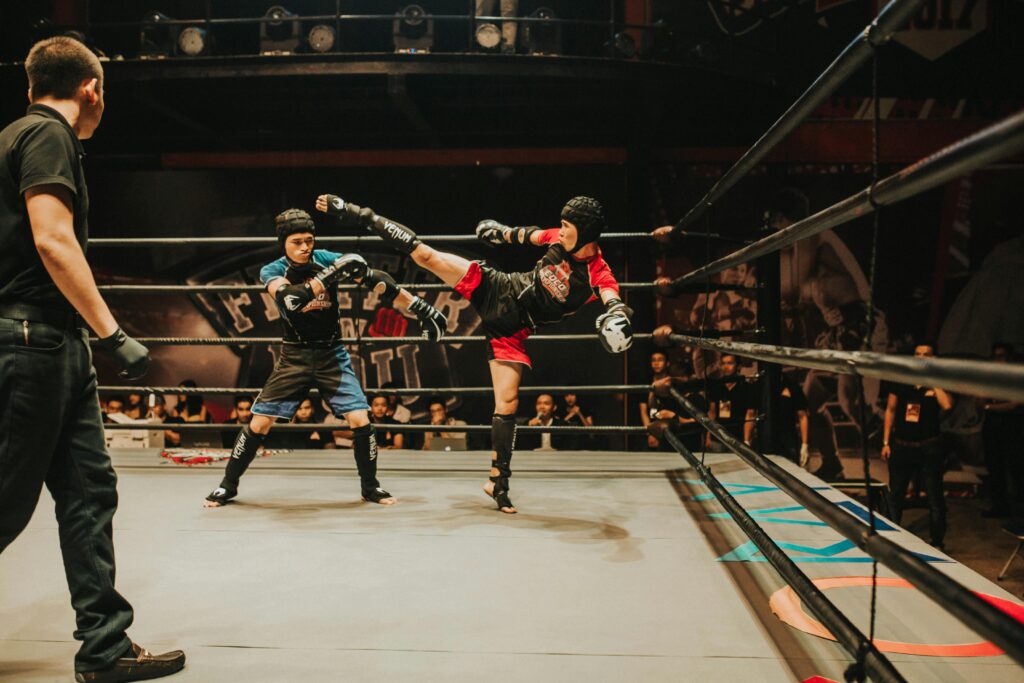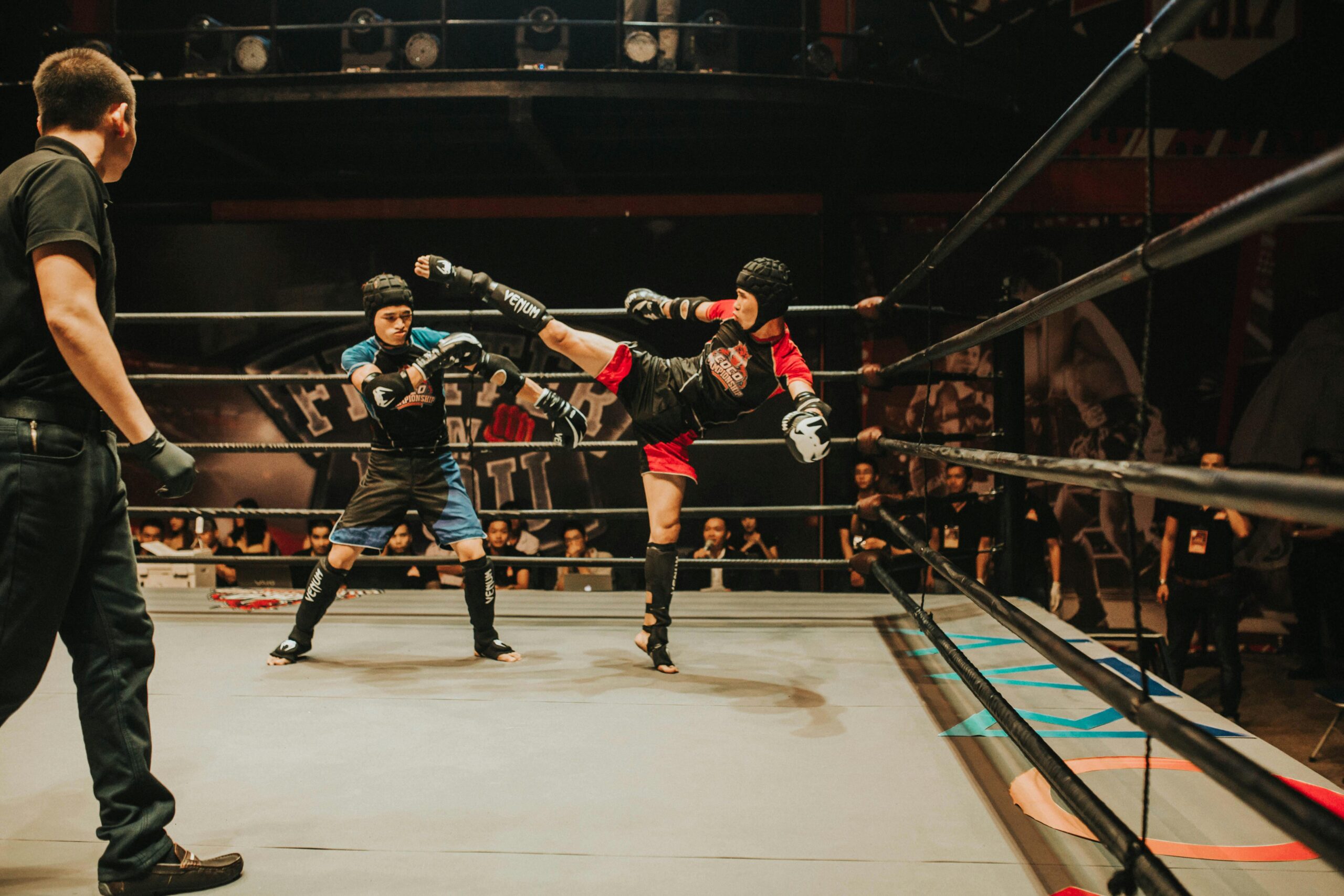The Mind is Your Sharpest Weapon — Until It Turns on You
Under the lights, with adrenaline surging, your brain should be your greatest ally.
But in the chaos of combat, neural saboteurs can hijack your thinking, warp your perception, and cost you the fight before you even realize what happened.
This is not about poor skills or lack of grit — it’s about cognitive errors hardwired into human neurology.
The good news? Once you know their tricks, you can dismantle them.

1. Hypervigilance Traps
The danger:
When your nervous system over-activates, you start scanning for every possible threat.
In a fight, that means your attention is scattered — your reactions slower and your energy drained.
Science says:
Over-activation of the amygdala during high stress has been shown to impair selective attention (Nature Reviews Neuroscience).
The counter:
- Narrow your visual focus to your opponent’s upper chest. This reduces reaction lag by up to 20%.
- Pair with breathing cadence control (inhale 4 sec, exhale 6 sec) to downshift the amygdala.
2. Memory Distortion Dangers
The danger:
Mid-bout, your memory of what just happened can shift. You think your opponent landed more (or less) than they actually did, which can lead to bad tactical calls.
Science says:
Acute stress can alter hippocampal encoding, causing event-sequence distortion (Frontiers in Behavioral Neuroscience).
The counter:
- Rely on corner feedback for objective round analysis.
- Drill “reset cues” — e.g., touch gloves to reset mental tracking.
3. Predictive Error Patterns
The danger:
Your brain predicts opponent actions before they happen — but fatigue, stress, and bias make these predictions inaccurate.
You end up reacting to “phantom punches” or overcommitting.
Science says:
Predictive processing errors spike when cortisol levels are elevated (Trends in Cognitive Sciences).
The counter:
- Use micro-pauses in defense to force conscious reaction over autopilot.
- Spar with feint-heavy partners to sharpen predictive accuracy.
4. Time Distortion Counters
The danger:
In high adrenaline states, time can feel slower or faster than reality — warping your timing.
Science says:
This is linked to striatum-dopamine dynamics under stress (Psychological Science).
The counter:
- Incorporate metronome drills into pad work to lock rhythm perception.
- Use internal counting (“one-two-three”) to anchor time perception.
5. Cognitive Lock-Up
The danger:
Overthinking under pressure causes motor freezing — your body stalls while the brain debates.
Science says:
High-load decision-making can inhibit motor cortex activation (Neuroscience & Biobehavioral Reviews).
The counter:
- Commit to pre-fight decision trees (if X, then Y).
- Train rapid choice sparring — coach calls random attacks to force instinctive response.
The Neural Defense Plan
- Tame hypervigilance → control visual focus + breathing.
- Fix memory errors → trust your corner, use reset cues.
- Reduce predictive mistakes → micro-pauses + feint sparring.
- Anchor time perception → rhythm drills + internal counting.
- Prevent lock-up → decision trees + rapid choice training.
Your fight brain can be your deadliest weapon — but only if you train it as hard as your body.
FAQ: Can you train your brain to perform better under fight stress?
Yes. Targeted drills, breathing protocols, and stress inoculation sparring can significantly reduce cognitive errors and improve fight decision-making.
Internal Links:
- The Champion’s Comeback: Bouncing Back From Mid-Fight Energy Collapse
- Nervous System Jailbreak: 5 Hacks to Override Fight Night Anxiety

